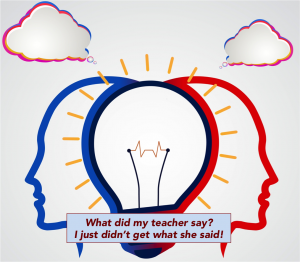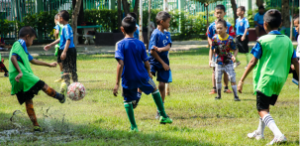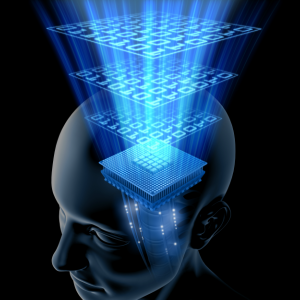
Thinking & Learning Blog
An informational blog for parents, teachers, students and those interested in current trends in thinking and learning.
 Blog Focus:
Blog Focus:
This blog focuses on brain-based tips and strategies to improve thinking and learning for all ages. Statistics tell us that a significant number of students are struggling to be successful in school. This is no different than in days past, but today, utilizing on new brain research, we have the capability to identify and help students who may process visual information differently than their peers. The difficulties facing students with visual processing deficits is that their performance in the classroom can look and feel as if they are not trying or that they are not very smart, which frequently causes these students to be overlooked, misjudged, or to be perceived as behavior problems.
These students, teachers, and often their parents, recognize that something is not quite right, but just can’t put their finger on the problem. On one hand, the child seems happy and easy to get along with outside the classroom, but when placed in a stressful setting where they must attend and perform in a traditional classroom situation…well, they fall apart. It is not uncommon for teachers, parents, or students themselves to misidentify specific issues causing these classroom difficulties; or they may choose not to deal with the situation because the issues seem to be minor in the big picture.
 Impact:
Impact:
It’s been my experience that when the educational system steps back from the traditional view and looks at students with a multidimensional lens (e.g., academic, social, emotional, and cultural), it becomes apparent that there are differences between learning-disabled students and ‘unconventional learners’. I have coined the term ‘unconventional learner™’ to describe people who have unique or different ways of cognitively processing information that are mismatched with conventional or traditional teaching methods.
These students find themselves frustrated because, as they try to process information, it is hard to understand or, even worse, it just does not “stick” at all. This chain of events may cause the student to work twice as hard to get barely acceptable grades (which is demotivating), participate as little as possible to “stay under the radar” of their teachers and peers, or just stop trying. Self-confidence is likely to be negatively impacted because of this situation.
Lack of confidence in the ability to learn impacts a person’s self-esteem: they to feel “dumb”, knowing it’s harder for them to keep up, but not knowing why. Frequently, ‘unconventional learners™’ may be perceived as lazy, disinterested or “troublemakers” when, in fact, they have difficulty processing information in a conventional manner…impacting their ability to focus, attend, and to understand material presented in a conventional classroom.
 Life Application:
Life Application:
To better understand a struggling learner’s cognitive processing strengths and weaknesses, educators should not only consider the learner’s academic performance and social/emotional IQ, but also their general day-to-day behavior in low stress situations. Examining students in low stress situations can provide a truer evaluation of the natural abilities that students may possess, such as leadership skills, organizational skills, verbal abilities, auditory skills, and/or sequencing skills.
Other informal methods of evaluating cognitive processing strengths and weaknesses that can give a more rounded view of learners’ abilities are:
- Comparing learners’ written and oral work with class norms to identify patterns in performance.
- Identifying issues or situations that cause a dip in performance or behavior.
- Observing behaviors, social interactions, and leadership on the playground or during informal gatherings.
- Using technology in new ways to assess students’ capabilities through cognitive processing and brain-based gaming techniques.
 Benefits:
Benefits:
Parents and educators who learn to recognize those students who underperform both academically and socially due to cognitive processing differences are better positioned to:
- Properly identify students in need of closer observation.
- Monitor their performances in academic environments with a focus on unconventional teaching and learning approaches more tailored to the individual, and finally,
- Fine tune diagnostic procedures to meet the needs of these students.
 Summary:
Summary:
In many cases, these students may simply have different approaches to learning, i.e., processing differences, rather than learning disabilities. The word “simply” in the last sentence is not really simple for most people to grasp. Teachers and parents need to consider how and why a student is having difficulty learning that differs from the perspective that was once the norm. We need to look beyond the behavior and any apparent lack of interest a student may exhibit and incorporate new approaches offered by brain-based learning research to reveal hidden issues that may be impacting students’ learning ability.
This awakening will help educators, parents and students to begin to constructively solve the mystery of why some students struggle to learn and to retain information as they read and will reveal the potential of the ‘unconventional learner™’ that is hidden in plain sight in every classroom.
 Thought Questions:
Thought Questions:
Is there an ‘unconventional learner™’ in your life?
Are they frustrated and struggle to deal with why they don’t understand things being taught in the classroom, yet they seem more that able to function outside the classroom?
What would it mean to them to realize that they are in fact able to learn but may be misunderstood?
Let me know your thought or comments…join the conversation and check back for upcoming blog topics on thinking and learning.

